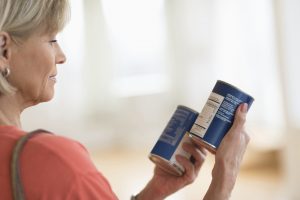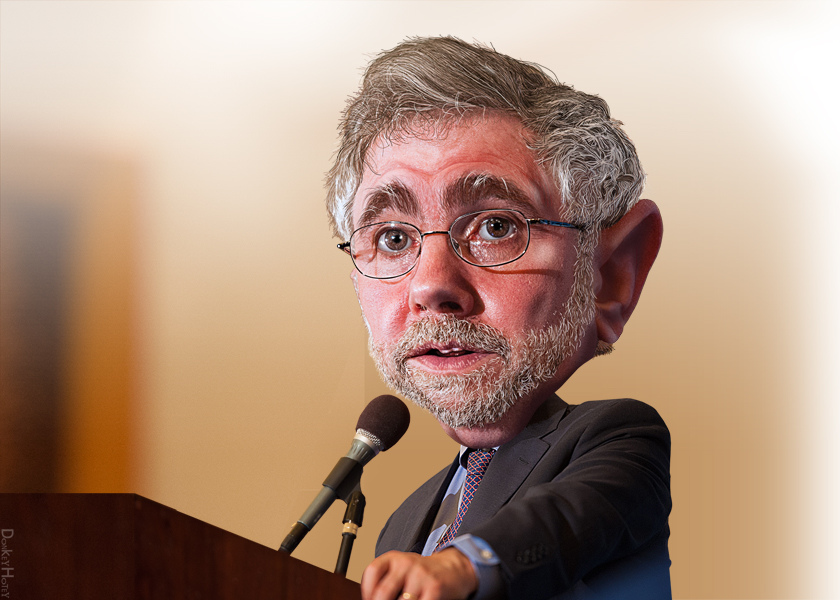The Big Lie of Food Labels

Editor’s Note: Last week we shared the exciting news that Joel’s new book, Beyond Labels, is available for pre-order. Today you can learn more about what went into creating it… and why its message could not be coming at a more crucial time. Check it out below.
Have you ever looked at a label or website and wondered what certain phrases or ingredients mean?
What is “all natural”?
Or “organic certified”?
How about a label that seems obvious, like “Product of the USA”? That only means it was packaged here. It might be beef from Paraguay and rice from Vietnam, but as long as its final retail packaging occurred in the U.S., it can receive the coveted label.
Did you know that? Does that strike you as slightly misleading?
Knowledge Is Power
If knowledge is power, as the saying goes, then I have a new book that’ll empower you as much as you can stand. In shameless promotion, this one is co-authored by me, and my sidekick is Dr. Sina McCullough, a biochemist.
Her first book, Hands Off My Food, digs deep into the machinations of Food and Drug Administration (FDA) labeling fraud and how practically nothing you thought you knew is actually true. Now she and I have teamed up to write the most unique book in the food/farming genre, a dialogue between a farmer and a doctor.
Each chapter is composed of a conversation between us. We’re both chatty, so some of it looks more like a soliloquy, but the format presents our information as if you were sitting listening to us talk about things. We’re introduced in the text like the various actors in a playbook. The title is simple: Beyond Labels.
The whole idea is to help you understand labels – both what they mean and what they want you to think they mean – and eventually move your food intake to completely unlabeled fare, like vegetables from your own garden.
This is not a recipe book, and it’s not a diet book. It’s a “what we’ve learned and how we think” book so that you can make your own choice.
Health Is Your Choice
What drew me to Sina when I first read her essays was her devotion to personal responsibility. I had never met a more liberty-minded person in my foodie greenie farm space.
Most of my food and farm buddies are socialists, so to find a kindred spirit whose answer to label confusion was not another federal agency made my spirit soar. We’re a great duo because I grew up with no Coke and no McDonald’s in a family that honored organics and home gardening and compost. If we had a secular altar, it was the compost pile.
In the summer we’d all sit around the kitchen cutting corn off the cob to freeze it for our winter stockpile. We wore out food mills making applesauce. I grew up healthy and am certain my robust health today is still a result of that home-grown, compost-fertilized, pasture-based meat and produce.
Sina grew up on the SAD diet (standard American diet) and by her teens began experiencing autoimmune disorders that became so severe in her early 30s that her family began preparing her funeral.
One day, after prodding from her husband, she had an epiphany: “Health is my choice.”
It’s not up to the doctors; it’s not up to dieticians. Instead of being a victim because nobody could fix her, she decided to take her own reins, take responsibility for her situation and change her trajectory.
Half a dozen years later, she’s a vivacious energizer bunny who wears me out just talking with her. She put her Ph.D. to use, began researching nutrition and agriculture, and found answers to questions she’d never asked.
Like that most people think the FDA tests food additives and all those long chemical concoctions you can’t pronounce.
It doesn’t.
The FDA has a huge list called GRAS, which stands for generally recognized as safe. It includes all sorts of things like genetically modified organisms (GMOs) and monosodium glutamate. You’d be amazed at what’s on that list – Sina tells you.
If you’re getting the impression that I’m proud of Sina and blessed to be her partner in this book, you’re right.
One Step Closer to Food Paradise
What do I bring to the conversation? My contribution is the farming end, like why it’s hard to find pastured eggs in the winter and how organic certification has nothing to do with those pretty meadow pictures on the label.
Most organic meat, poultry and dairy are from factory farms – yes, those concentrated animal feeding operations (CAFOs).
I’m able to explain why pork is flabby these days compared with yesteryear. Did you know farmers used to make pigs jump up an 18-inch-high threshold to exercise their hindquarters, where the hams come from? That exercise made the meat more oxygenated and increased blood flow. And exercised muscles are more succulent and less dry.
The book is divided into several parts to take a person who is used to eating from the Sheetz gas station all the way to a backyard garden.
We call it a continuum toward food paradise. Everyone is somewhere on that continuum. We don’t judge anyone for being where they are. What we do is coach you along a path toward more vibrant choices.
Perhaps none of us ever reaches paradise, but every step toward it brings us a higher chance of meeting our health goal.
When we began this project a year ago, neither of us had a clue that we’d launch it in the midst of the largest global pandemic in history. This pandemic might not kill more people than some in the past, but it’s certainly been more disruptive.
Never have people been more interested in building up their immune systems. Never have people questioned so aggressively the orthodox narrative from credentialed experts.
We launched pre-orders last week. You can reserve your copy on Amazon here. Shipping starts May 27.
Thank you for empowering yourself.






